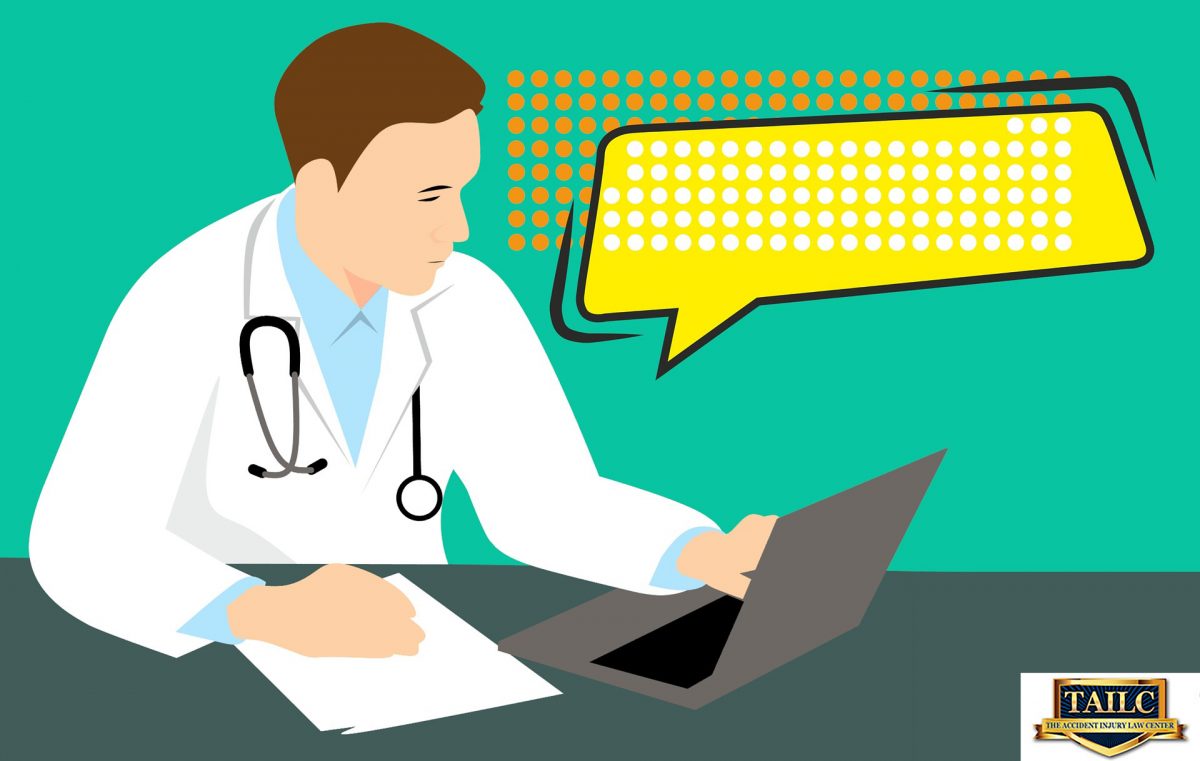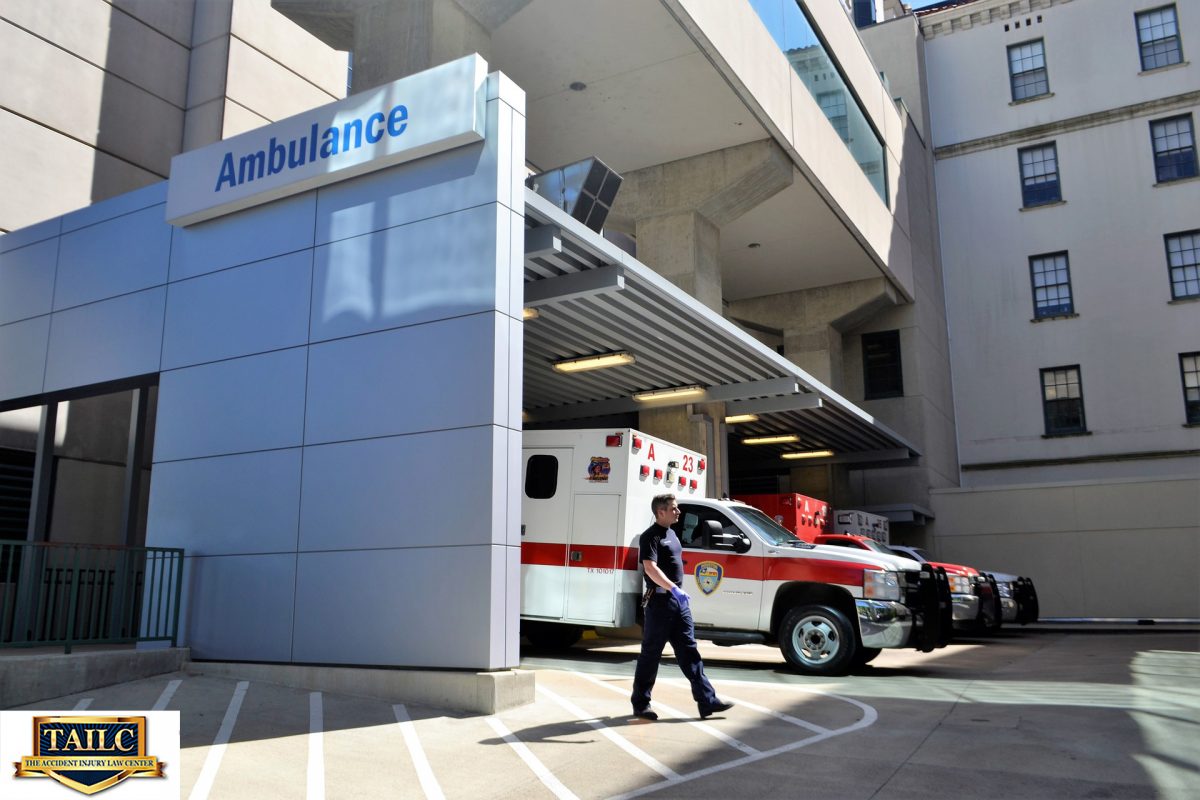
Going to the Doctor and Proving Causation For Personal Injury Claim
When you have pain of any kind after an accident, do not assume that your body will heal itself and that the pain will go away, go to the doctor. If you do not have medical insurance, because you cannot afford it, apply for Medi-Cal or other public healthcare. If you do not get treatment right away for your pain or injury, the at-fault driver’s insurance company will use this as a reason to say that you were not injured in the accident. They will say that you are making it up just to get money.
I know it from experience, from also waiting for pain to go away. I know that it’s natural to assume that your body is amazing at healing itself and that this time will be no different and that a doctor is not necessary. However, in the context of an injury caused by an accident, it is best to get checked by a doctor or other medical professional to document that you had the pain right after the accident.
This is important because in your claim for personal injury, we have to show something called “causation.”
What is Causation?
Causation means that we need to show that the accident, or other incident that you were involved in, caused your injuries. We can do that relatively easily if a client is in a car accident and the police and other emergency personnel show up at the scene and document the client’s injuries. However, if that does not occur, we still have to connect the event to the injuries.
The best way to do that is for a person to seek medical attention. They should seek it as soon as possible after an accident or incident. They should tell the medical provider that they were in an accident or about the incident that caused their injuries.

Examples of Personal Injuries after an Accident
Regarding broken bones, those are typically easy to find with imaging such as x-rays, and even a hairline fracture can be detected. Sometimes headaches and memory problems will occur after an accident. These are important things to have documented with a medical professional and to continue to be seen for if they persist, because this could indicate a brain injury. A person does not need to lose consciousness to have a brain injury. Sometimes a brain injury can be present when the person is disoriented or foggy minded after an accident.
Many times the medical professionals will take a CT scan of a person’s brain if they complain of a head injury. This is typically to see if there is bleeding in the brain. It is to see whether the person needs to be rushed into surgery. A negative CT scan does not mean that the person does not have a brain injury. It only means that the person does not need any kind of emergency surgery concerning their brain.
Personal Experience
I once had a client that had pain in her shoulder area after an accident. She hit the center divider on the freeway. She did not realize her clavicle was broken until she went to pick something up and it snapped. Her bone was already weak from the fracture. However, when she put stress on it by trying to pick something up it caused her bone to snap. This was a situation where this client did get medical attention after the accident on the same day. However, the hospital missed the broken clavicle somehow.
If you continue to feel pain in a certain area, and it does not subside after a few days, go back to the doctor. Tell them you think they need to check you again, because the pain is not diminishing.
Significance of the Doctor’s Visit Report for Personal Injury Claim
If you go to the doctor after your accident or incident, ask for your visit report. You want to make sure that your doctor noted that you were in an accident. You want your doctor to know that you were involved in a specific incident. If it is not written in the visit report, then that doctor is going to say that you never told them about the accident or incident, even if you did.
This is how that line of questioning goes at a deposition or trial. Defense Lawyer: “Doctor, if your patient would have told you that they had been in a car accident, you would have put that in your visit notes right?” Doctor: “Yes, if the patient told me they were in a car accident I definitely would have put that in the visit notes.” The doctor does not want to look like they forgot to do something or like they cannot remember what was said at the visit, so they will say they were never told about the accident or the incident.
Therefore, you must check your own medical visit records as soon as possible after each visit. Because you have to make sure your treating provider is inputting accurate information in the visit report.
False Information
There are even times when the medical facility will put the wrong information in a visit report. For example, if you tripped on a pallet at a supermarket, the visit report might say that you slipped on water, which is not true. It’s not that the medical professional is attempting to put in false information, but they may have seen another patient right around the same time as you and that other person slipped and fell on water, so it could be a simple mistake. We all make mistakes, so it is natural for your treating provider to also make mistakes. Look for mistakes in your treatment reports because they can negatively affect your personal injury claim.
Have you been injured and was it someone else’s fault?
Call (714) 591-0661 now to speak to an attorney for free.
Click the orange button below to have us call you.
What to Do If Your Healthcare Provider is Not Attentive to Your Needs
If your healthcare provider is not taking your injuries seriously let your attorney know about this, so that he or she can get you set up with a doctor that will treat you on a lien basis, or that might actually take your insurance. Some doctors do not have the time to be 100% concerned about every single patient that walks through the door or they have to wait and see what happens.
Personal Experience
I went to a doctor once. I thought I had a broken wrist, which still causes me pain to this day, over 25 years later. The doctor said “what do you want me to do about your wrist?” That is what he said when he entered the room. I said, “I would like you to check if it’s broken and if there’s anything that can be done for it.” He said, “even if it’s broken, do you want surgery?” Then I said, “I don’t know.” I ended up leaving without anything being done, not even x-rays, because the doctor did not order x-rays. I was in my 20’s at the time. I assumed that he was the wiser person in the room and that I was being silly for even going to the doctor to have my wrist checked.
Now, I know otherwise. He was a rude doctor that possibly committed malpractice. However, sometimes doctors just are not nice people. They might have a bad day. Or they are overwhelmed and they say and do things that are unusual for a doctor to do. The bottom line is they are people too. They are not perfect. They have their moods and their prejudices just like any other person.
So, if you are not getting the treatment you feel you deserve from your medical professional, there is a possibility of treating with another health professional, even within your insurance plan sometimes.

Follow Doctor Orders
When you get medical attention and the doctor recommends treatment, follow the doctor’s orders. Unless you believe it does not make sense or it causes you more pain or discomfort. For example, you think you have a broken arm. If the doctor recommends physical therapy for your arm, you should get a second opinion, from another doctor, before starting physical therapy. But if you agree with what the doctor recommended and you believe it is in your best interest to follow through with the doctor’s recommendation, then follow the recommendation. In case your doctor schedule follow-up visits, go to the follow-up visits. If your doctor schedules a follow-up visit, go to the visit, because it looks bad for your case if you do not follow your doctor’s orders.
If they sent you home with medical equipment, like a wheelchair, crutches, exercise equipment, or anything else, do not assume that it is yours to keep. After you are done using the equipment, call the medical facility that provided it to you to determine how to return it. Take note of who you spoke to and what they told you. Sometimes they will tell you to keep the equipment, or they might schedule a pick-up, or they might ask you to drop it off at one of their facilities.
If you do not take it back when they are expecting it back, your medical insurance company will continue to be billed for it. Also, they will add the billing to the line that the medical insurance has against your personal injury claim.
Wrapping it Up
In summary, if you have been injured in any way from a car accident or any other incident, it is best to seek medical attention as soon as possible afterwards. It is a good idea to determine just how many injuries you have. It is also a good way to support causation, i.e., that the accident or incident caused the injury.
To ask questions about filing a personal injury claim and how causation impacts your claim, call personal injury attorney Moses Yneges at The Accident Injury Law Center.

